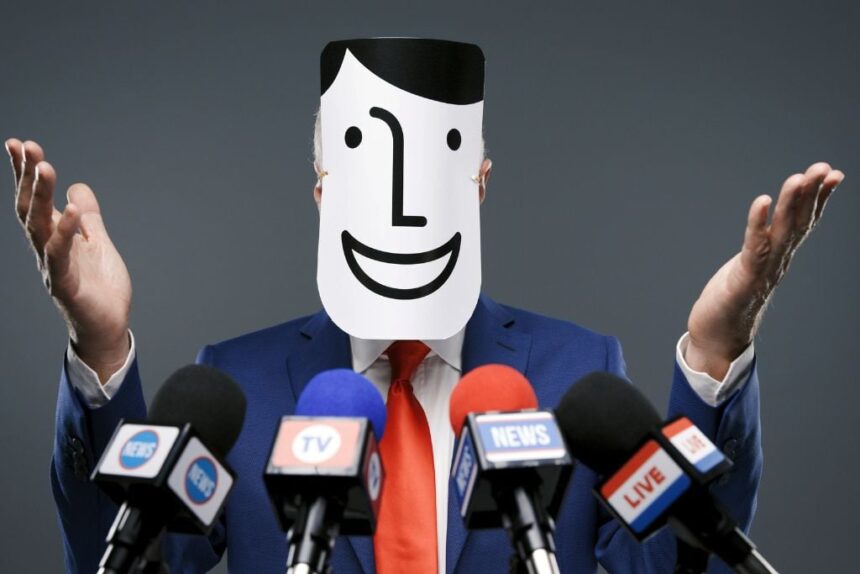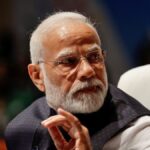Population Control Through Language Manipulation – Noam Chomsky
Language is more than a means of communication; it is a powerful tool that shapes perception and behavior. In the political arena, manipulation of language can foster misinformation and create narratives that serve those in power.
By using vague or emotional terminology, leaders can influence public opinion, obscure the truth, and justify decisions that may be unpopular or unacceptable. This analysis requires a critical awareness of the language we use in political discourse, asking us to discern the hidden meaning behind words in order to make accurate and independent decisions.
In this context, it is important to examine the role empty marker-a common concept in contemporary dynamics, which is often not understood by the public.
Immersed in their daily routine, people receive subtle and biased information, forming public perceptions in the process.
What is an Empty Marker?
The empty signifier has its roots in political and philosophical theory, especially in the post-structuralism of Ernesto Laclau. It refers to a word or symbol that appears to have a fixed meaning but is in fact ambiguous and open to multiple interpretations.
The term functions as a “container” that can be filled with various meanings depending on the political, social, or cultural context. Words like “democracy,” “freedom,” or “justice” are often empty symbols because interpretations vary among different groups. In politics, these terms are useful for combining various demands and bringing people with different interests under one umbrella.
For example, the word “change” can carry different meanings for different groups, facilitating collective mobilization without the need for a clear and unified goal.
A Literary Perspective
From a literary point of view, empty markers are terms that, although they have a clear meaning, but do not have a fixed content and can be interpreted in different ways depending on the context. This term allows for the articulation of various requests, becoming a powerful tool in political and social discourse. However, while they are a means of uniting people, they also run the risk of being manipulated and causing ambiguity.
Blank Markers in Political Theory
Prominent theorists such as Ernesto Laclau, Jacques Lacan, Chantal Mouffe, and Slavoj Žižek have emphasized the importance of empty signifiers in constructing political identities. Laclau, for example, argues that he groups different social demands under broad terms like “the people” or “justice,” which facilitates a collective identity. Lacan emphasized that language does not have a fixed meaning, so it can be interpreted in many different ways. Mouffe highlights its role in establishing hegemony, especially in the context of conflict, while Žižek warns of the risk of manipulation in political discourse. Together, these thinkers emphasize the power of empty signifiers in mobilizing social groups, while cautioning against potential abuse and ambiguity.
Multilateral Organizations and Blank Markers
When analyzing the actions of multilateral organizations that promote democracy, such as the UN, the OAS, and the EU, empty signifiers play a fundamental role. Terms like “democracy,” “human rights,” and “governability” represent universal values but often lack specific meaning, allowing for multiple interpretations depending on the political context of each country.
For example, the concept of “democracy” can range from simply holding elections to a more comprehensive understanding, including the separation of powers and the protection of minority rights. This ambiguity helps build consensus among governments, NGOs, and citizens with different agendas based on democratic ideals. However, this lack of clarity also opens the door to criticism, as it can lead to conflicting interpretations and ineffective policies.
Calls from organizations like the OAS and the UN to “restore democracy” in countries such as Venezuela or Nicaragua illustrate this problem. For some, the restoration of democracy means simply holding elections, but for others, it means a complete overhaul of the political system.
Empty Markers in Authoritarian Regimes
In authoritarian governments, empty signifiers like “democracy” or “justice” can be dangerous. The regime often manipulates these terms to justify repressive actions when they appear legitimate to citizens and the international community. By using positive and universally accepted language that has no concrete meaning, authoritarian regimes can cover up policies that violate basic rights and civil liberties.
For example, an authoritarian government may claim to be committed to “human rights” while simultaneously cracking down on opposition groups. This dissonance between language and reality confuses the public, making it harder to challenge government actions.
In addition, the use of empty signifiers can create divisions in society, as different groups interpret the term in conflicting ways. This undermines opposition movements and breeds distrust, which ultimately perpetuates authoritarian rule by preventing citizens from demanding substantial change.
Impact on Citizens with Limited Political Understanding
For citizens with limited political knowledge, the use of empty markers can cause confusion and frustration. Terms like “democracy,” “human rights,” and “government” may seem distant or irrelevant if they do not have clear, practical meanings.
To counter this, it is important for multilateral organizations to communicate more clearly and directly. Some strategies include:
- Accessible description: Break down complex concepts and give concrete examples, such as linking “democracy” to the right to vote or access to basic services.
- Connecting to Real Needs: The relationship of empty signifiers to everyday problems like access to water, security, or education, shows how abstract principles can improve the quality of life.
- Inclusive Communication: Engage in dialogue with local communities, addressing specific realities to build trust and understanding.
- Political Education: Develop educational programs that explain the practical implications of concepts like “democracy,” foster critical thinking and encourage active civic engagement.
If empty signifiers do not translate into concrete actions, citizens may lose faith in the institutions that use them. The key is to turn these abstract terms into tangible, measurable solutions, thereby restoring trust and promising real change.
As Noam Chomsky reminds us: “He who controls the language controls the narrative; he who controls the narrative controls reality.”

Magistrate Miguel Ángel Martín
Magistrado Miguel Ángel Martín is a Doctor in Ciencias por la Universidad Central de Venezuela, specialized in Derecho Público and Experience in Resolución de Conflictos y Politicas de Seguridad y Defensa. Has been Dean of the Escuela de Derecho y Ciencias Politicas at Universidad José Antonio Páez and has taught in several universities.
With more than 30 years in the justice system, there is a wide variety of cargo, and was the President of the Sala Constitution and the Tribunal Supremo de Justicia de Venezuela. He is the author of ten legal works and an international conference on Public Policy and Justice.
He currently lives in exile in the United States due to the political persecution of the Venezuelan regime, which ordered his detention and the raid of his home. During his career, he led investigations on corruption, including the case of Odebrecht, and collaborated with the OEA in the development of the “Responsibility to Protect (R2P)” norm, delegitimating the de facto government in Venezuela and promoting actions before the International Court and other tribunals for violations of human rights and crimes against humanity.
Magistrate Miguel Ángel Martín
Magistrate Miguel Ángel Martín holds a Doctorate of Science from the Central University of Venezuela, specialized in Public Law, with expertise in Conflict Resolution and Security and Defense Policy. He has been Dean of the School of Law and Political Science at José Antonio Páez University and has taught at various universities.
With more than 30 years in the judicial system, he has held many positions, finally as President of the Constitutional Chamber and the Supreme Court of Venezuela. He is the author of ten legal works and an international lecturer on Public Policy and Justice.
Today, he lives in exile in the United States due to political persecution by the Venezuelan regime, which ordered his arrest and raided his home. Throughout his career, he led investigations into corruption, including the Odebrecht case, and collaborated with the OAS to develop the «Responsibility to Protect (R2P)» framework, delegitimizing the de facto government in Venezuela and advocating for action before the International Criminal Court. and other courts for human rights violations and crimes against humanity.




